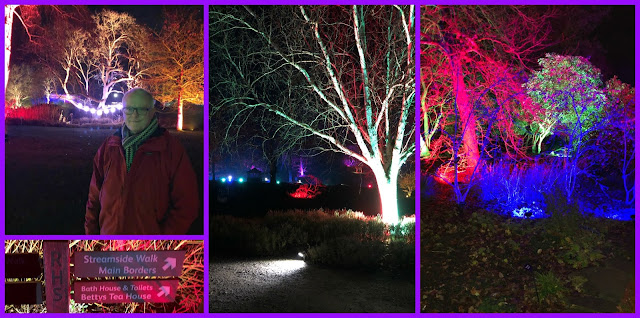 |
Haworth Moors followed by Stew and Dumplings.... |
Top Withins
A positive feature of 2020 (and God knows, we need to cherish positive aspects of 2020) is that I’ve walked more often than I’ve ever walked before – mostly locally through Northcliffe, Heaton and Hirst Woods but also along the Leeds-Liverpool canal and up onto the Shipley, Baildon, Ilkley and Haworth moors. I regularly reflect on how lucky I am to live in Saltaire with easy access to city, town and village facilities as well as the Yorkshire countryside. The pictures above will surprise no-one (in Europe or the USA) who knows me well enough to know that Top Withins and the Brontë falls are among my favourite locations. The view from Top Withins can be murky, misty, wild and atmospheric and it can also be inspiring, expansive, bright and uplifting. Sometimes all at once.
Refunds and postponements
West Yorkshire, like most of the rest of the Midlands and North, will be in “Tier 3” after Lockdown 2.0 ends next week. I hope in years to come I will re-read posts like this and wonder what Tier 3 meant and Covid-19 will be a distant memory of a bad couple of years that humanity overcame. Time will tell. (Yes, I know I overuse that phrase but then I like to view life historically….) So, refunds are (once again) coming in for theatre bookings, afternoon teas and travel plans. One thing that survived Lockdown 2.0 was an outdoor experience at the Royal Horticultural Society Garden in Harrogate: the Glow walk at Harlow Carr Gardens.
Glow
Harlow Carr is the most northerly RHS garden, originally part of the Forest of Knaresborough and then the Harlow Carr Botanical Gardens before the RHS absorbed the Northern Horticultural Society and took on the running of Harlow Carr. Glow is a simple idea. Lay a few thousand metres of cable and flood trees with colour….
Shades of Imagination
Highlights include a tunnel of light bulbs, reflections across the Queen Mother lake, newly built bridges, mini-waterfalls, willow sculptures of stags and, of course, the colours glowing in the cold night air: deep shades of blue, red, purple, pink and green embellishing the trunks, branches, bushes and leaves, revealing their natural, twisty (sometimes ancient) glory. It was also the occasion of my first mince pie in 2020…. December is just around the corner.















